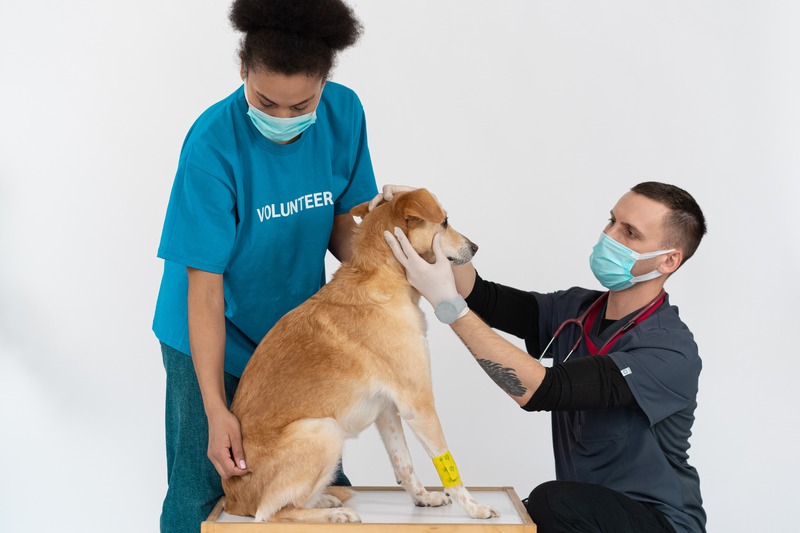
When Should Your Horse Visit a Rehabilitation Center?
When you’re responsible for the care of a horse, their health and well-being are always at the forefront of your mind. Whether they’re a beloved companion, a competitive athlete, or a working animal, it’s crucial to understand when they might need a little extra help beyond standard vet care.
Enter the world of equine rehabilitation centers—specialized facilities designed to support horses through recovery and ensure they’re in tip-top shape. But how do you know when it’s time to consider such an option for your hoofed friend? Let’s trot through the telltale signs that it might be time for your horse to check in for some R&R (rest and rehabilitation, that is).
The Signs That Point to Rehab
There are several reasons you might consider a rehabilitation center for your horse. Much like humans, horses can suffer injuries, undergo surgeries, and experience wear and tear that needs professional attention. We’ll explore some of these signs so you can be better equipped to make the right call for your equine companion.
Post-Surgery Recovery
After any operation, horses require detailed care and supervision to heal properly. This is where a horse surgeon plays a pivotal role, not only performing the surgery but also outlining the recovery process. If your horse has undergone a significant procedure, a rehab center can provide the structured environment and expert care necessary for a complete recovery.
Some surgeries that might necessitate a stint in a rehab center include:
-
Ligament or Tendon Repair
-
Joint Surgery
-
Fracture Repair
These conditions often need specialized post-op treatments such as controlled exercise, physiotherapy, or hydrotherapy that a typical stable environment might not offer.
Chronic Conditions and Injury Rehabilitation
Occasionally, horses develop chronic conditions or suffer from injuries that benefit from dedicated rehabilitation programs. Issues like arthritis, tendonitis, or persistent wounds can be managed more effectively with the resources and expertise found at a rehabilitation center. These programs are designed to reduce pain, improve mobility, and ultimately enhance the quality of life for your horse.
Performance Enhancement
Competitive horses, much like elite human athletes, may need specialized conditioning to perform their best. A rehabilitation center can offer focused fitness programs that include strength training, cardiovascular activities, and flexibility exercises to give your horse a competitive edge.
Choosing the Right Horse Rehabilitation Center
Once you’ve decided that your horse might benefit from a visit to a rehab center, how do you pick the right one? Here’s what to look for:
-
Specialized equipment, such as water treadmills or vibration plates
-
Professional staff with expertise in equine rehabilitation
-
A variety of therapy options tailored to your horse’s needs
-
Positive testimonials and a history of successful rehabilitation cases
Finding a trusted horse rehabilitation center can make all the difference in your horse’s recovery journey. It’s essential to do your research and choose a facility with proven success and a comprehensive approach to treatment.
Time to Commit to a Stay
The length of time your horse will need to spend at a rehab center can vary greatly depending on their specific needs. The goal should always be to give your horse the time they need to heal thoroughly without rushing the process. Communicating with the center’s staff and your regular veterinarian will help establish an appropriate timeline.
Other Veterinary Services
While our focus is equine care, it’s worth mentioning the comprehensive health services available for all kinds of pets. For example, young pets such as puppies and kittens have their own set of veterinary needs that are distinct from those of fully grown animals.
For young pets, early visits to the vet are vital for vaccinations, initial health checks, and spaying or neutering. A puppy vet in San Angelo or your local area can offer these essential services, ensuring a solid foundation for your pet’s long-term health and happiness. Looking after the vet needs of the smaller members of our animal family is just as crucial as caring for our larger equine friends.
Maintaining Well-Being Between Rehab Visits
While rehabilitation centers are indispensable for recovery and specialized care, maintaining your horse’s well-being on a day-to-day basis is just as important. Here are some tips:
-
Keep up with routine veterinary care
-
Follow a sound nutrition plan
-
Engage in regular, appropriate exercise
-
Monitor for changes in behavior or signs of discomfort
By staying vigilant about your horse’s health, you can catch potential issues early and possibly reduce the need for extensive rehabilitation down the line.
Conclusion
As a dedicated horse owner or caretaker, you always want what’s best for your majestic companion. Recognizing when it’s time for your horse to visit a rehabilitation center can ensure that they receive the care they need when they need it most. Whether recovering from surgery, managing a chronic condition, or aiming to achieve peak performance, the tailored support from a rehabilitation center can be invaluable.
Let’s remember to care for all our pets, large or small, with the same attention and commitment. After all, the health and happiness of our animals are what bring joy into our lives and bonds that last a lifetime.
